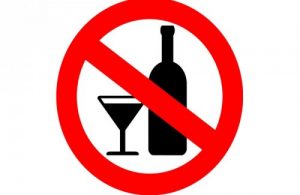Is Alcohol a Problem? Take This Test
Wednesday, April 10th, 2024Addiction and Recovery
By Bob Gaydos
 Some eight decades ago, Marty Mann, the first woman to get — and stay — sober in Alcoholics Anonymous (her sponsor was AA co-founder Bill Wilson), decided she wanted to spread the message of recovery. She used her talents as a writer and in public relations to teach people the facts about the disease of alcoholism. That work is still going on via her creation, the National Council on Alcohol and Drug Dependence, a voluntary health organization with a nationwide network that provides information on prevention, awareness and treatment of alcoholism and drug addiction.
Some eight decades ago, Marty Mann, the first woman to get — and stay — sober in Alcoholics Anonymous (her sponsor was AA co-founder Bill Wilson), decided she wanted to spread the message of recovery. She used her talents as a writer and in public relations to teach people the facts about the disease of alcoholism. That work is still going on via her creation, the National Council on Alcohol and Drug Dependence, a voluntary health organization with a nationwide network that provides information on prevention, awareness and treatment of alcoholism and drug addiction.What are the Signs of Alcoholism?
1. Do you drink heavily when you are disappointed, under pressure or have had a quarrel with someone? Yes No
2. Can you handle more alcohol now than when you first started to drink? Yes No
3. Have you ever been unable to remember part of the previous evening, even though your friends say you didn’t pass out? Yes No
4. When drinking with other people, do you try to have a few extra drinks when others won’t know about it? Yes No
5. Do you sometimes feel uncomfortable if alcohol is not available? Yes No
6. Are you more in a hurry to get your first drink of the day than you used to be? Yes No
7. Do you sometimes feel a little guilty about your drinking? Yes No
8. Has a family member or close friend express concern or complained about your drinking? Yes No
9. Have you been having more memory “blackouts” recently? Yes No
10. Do you often want to continue drinking after your friends say they’ve had enough? Yes No
11. Do you usually have a reason for the occasions when you drink heavily? Yes No
12. When you’re sober, do you sometimes regret things you did or said while drinking? Yes No
13. Have you tried switching brands or drinks, or following different plans to control your drinking? Yes No
14. Have you sometimes failed to keep promises you made to yourself about controlling or cutting down on your drinking? Yes No
15. Have you ever had a DWI (driving while intoxicated) or DUI (driving under the influence of alcohol) violation, or any other legal problem related to your drinking? Yes No
16. Do you try to avoid family or close friends while you are drinking? Yes No
17. Are you having more financial, work, school, and/or family problems as a result of your drinking? Yes No
18. Has your physician ever advised you to cut down on your drinking? Yes No
19. Do you eat very little or irregularly during the periods when you are drinking? Yes No
20. Do you sometimes have the “shakes” in the morning and find that it helps to have a “little” drink, tranquilizer or medication of some kind? Yes No
21. Have you recently noticed that you can’t drink as much as you used to? Yes No
22. Do you sometimes stay drunk for several days at a time? Yes No
23. After periods of drinking do you sometimes see or hear things that aren’t there? Yes No
24. Have you ever gone to anyone for help about your drinking? Yes No
25. Do you ever feel depressed or anxious before, during or after periods of heavy drinking? Yes No
26. Have any of your blood relatives ever had a problem with alcohol? Yes No
Here’s how to score the test. According to the NCADD, if you answered two or more questions with a “yes,” you should consider having your drinking assessed by a professional. If you have five to eight “yes” answers, you could have a serious problem with alcohol. This test does not apply to drug use. The test and others, as well as information on substance abuse can be found on the NCADD web site: ncadd.us.
rjgaydos@gmail.com
Tags: AA, Alcohol use disorder, alcoholics anonymous, alcoholism, Bill Wilson, Bob Gaydos, Disease, DWI, Marty Mann, NCADD, recovery, sober
Posted in Bob Gaydos | No Comments »

